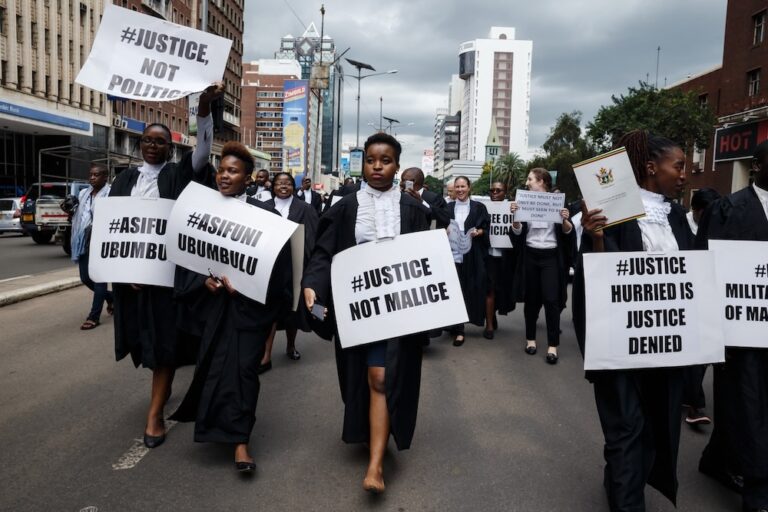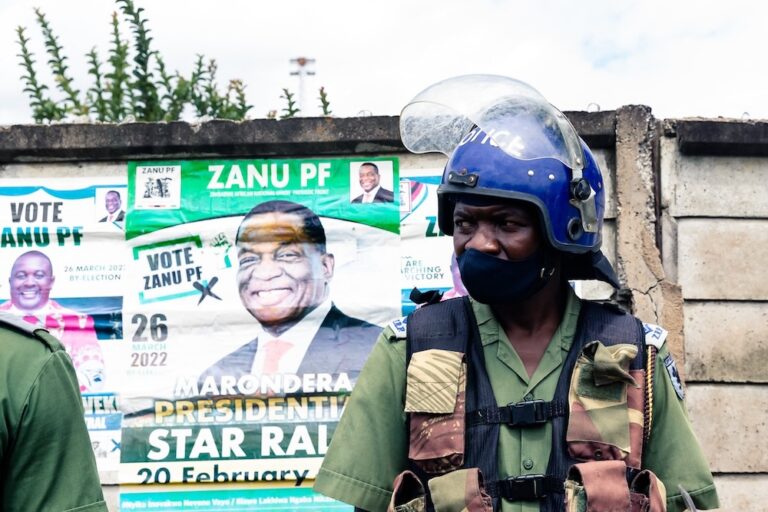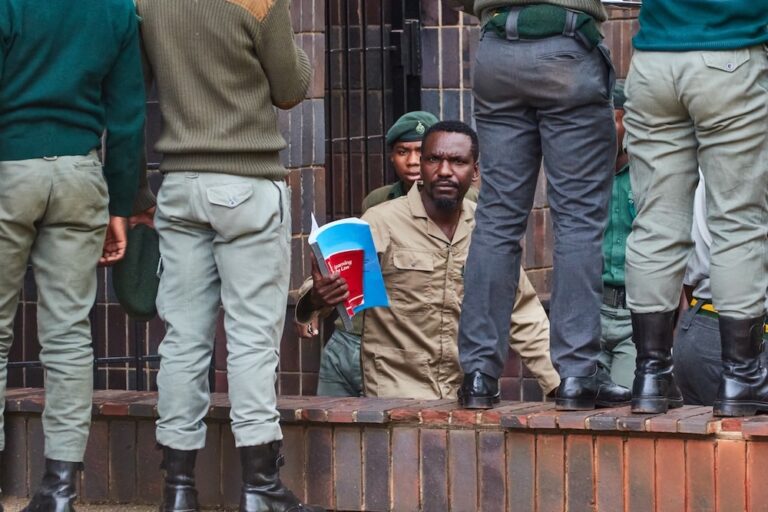(MISA/IFEX) – On Friday 17 May 2002, three journalists arrested on 16 May for allegedly writing “falsehoods” were released on bail. They were detained for one night at the Harare Central Police Station. “The Standard” editor Bornwell Chakaodza, entertainment editor Fungayi Kanyuchi and senior reporter Farai Mutsaka were released on bail of Z$10,000 (approx. US$183) […]
(MISA/IFEX) – On Friday 17 May 2002, three journalists arrested on 16 May for allegedly writing “falsehoods” were released on bail. They were detained for one night at the Harare Central Police Station.
“The Standard” editor Bornwell Chakaodza, entertainment editor Fungayi Kanyuchi and senior reporter Farai Mutsaka were released on bail of Z$10,000 (approx. US$183) each by Harare magistrate Joyce Negonde.
Kanyuchi told MISA-Zimbabwe that he and his colleagues were released at around 1:00 p.m. (local time) and ordered to report to the Law and Order Section once every two weeks until 3 June when the case is to be tried.
The journalists’ lawyer, Roseline Zigomo of Atherstone and Cook, said that the state’s case is that the journalists wrote “falsehoods” and did not verify facts about the acquisition of anti-riot gear and “sex for freedom” deals between police and prostitutes. Kanyuchi stated, “This is a plot by the police to intimidate us since our stories are factually correct.”
Commenting on the arrests in the 19 May edition of “The Standard”, Chakaodza said that the police was deliberately targeting private media journalists while leaving the state media alone. “I do not know when I ever saw such a conglomeration of lies peddled in the so-called public media and Moyo has done nothing about it,” said Chakaodza. “We have a minister who has become too big for his ministerial boots and is day in and day out literally destroying Zimbabwe. But Moyo must know that nothing endures forever. Everything perishes in time and Moyo’s time is not that far off. Why he is at war with journalists and the society as a whole boggles the mind,” said Chakaodza. The act under which the journalists are being charged seeks to criminalise journalists and makes them liable to pay heavy fines or face two years in jail for publishing “falsehoods.”


